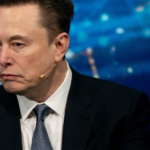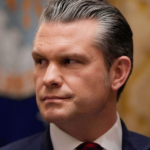Hoffman responded, writing: “Shows you didn’t read the post (not shocked). When you are ready to have a professional conversation about AI’s impact on America, I’m here to chat.”
Following that, Amodei today published a statement clearly intended to reference Sacks: “There has been a recent uptick in inaccurate claims about Anthropic’s policy stances. Some are significant enough that they warrant setting the record straight.”
Over the past year, Anthropic has positioned itself as an advocate of AI safety and regulation. The company has supported state-level regulation, repeatedly opposing a Trump administration–proposed federal preemption bill that attempted to block state-level AI regulation for a decade.
In his official position as AI czar, Sacks has argued that AI regulation, especially at the state level, risks creating a “patchwork” system that would stifle U.S. innovation and put the country at risk of losing a global AI arms race. His stance aligns with a broader push among pro-Trump tech leaders to prioritize speed and competitiveness over regulation.
“The U.S. is currently in an AI race, and our chief global competition is China,” Sacks said in an onstage interview at Salesforce’s Dreamforce conference in San Francisco this week. “They’re the only other country that has the talent, the resources, and the technology expertise to basically beat us in AI.”
The spat between the White House and Anthropic has sparked a wider divide in Silicon Valley.
Sriram Krishnan, a senior White House policy advisor on AI and one of the authors of the American AI Action Plan, also weighed in last week. Sharing one of Sacks’ posts on X, Krishnan argued that the EA (Effective Altruism) and AI safety lobby had been traditionally allied with the left and were angry over lost influence and credibility.
Krishnan called out members of an “AI safety industrial complex” and accused safety groups of trying to “sneak in AI laws for the entire country using their influence in one state [California],” warning that overregulation could cede the field to China and stifle innovation.
Representatives for the White House did not immediately respond to a request for comment.









